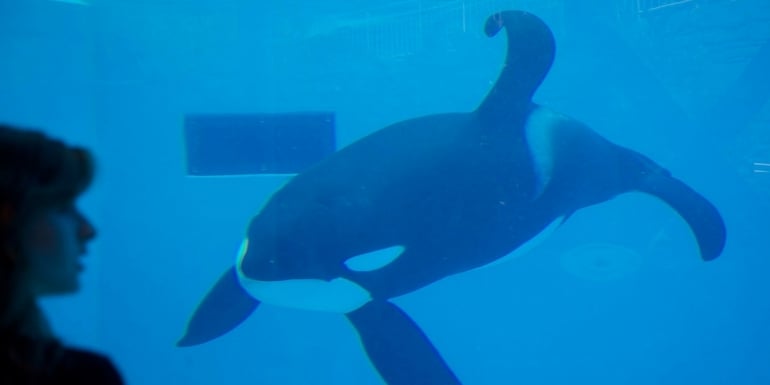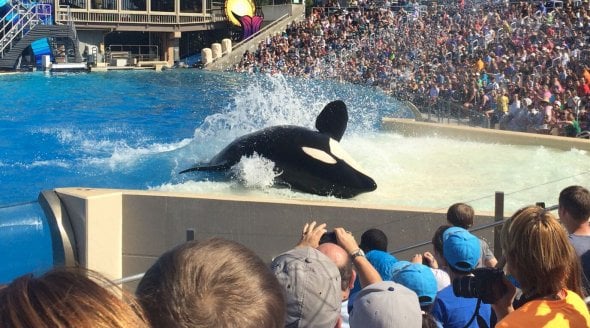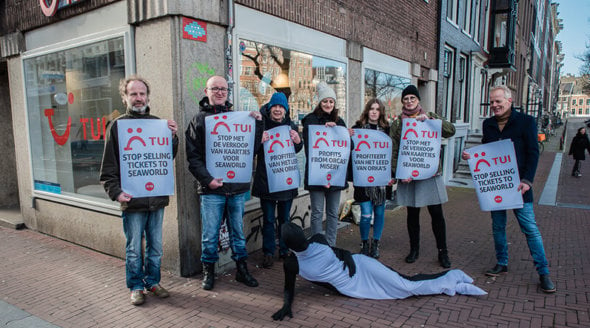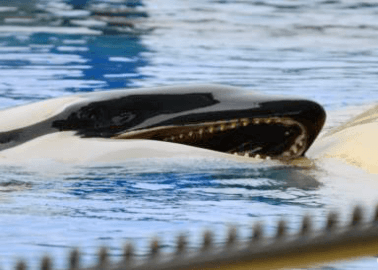What Life Is Like for Orcas in Captivity
Captive orcas exploited for human entertainment suffer both psychologically and physically.

In the ocean, orcas travel as far as 140 miles in a single day with their family pods. However, when held captive at places like SeaWorld, they’re confined to concrete tanks, often given psychoactive drugs, and forced to live in incompatible groups, sometimes leading to aggressive behaviour and injuries.
Captivity Is Cruel
When held captive, these majestic marine mammals often exhibit repetitive behaviour patterns not normally seen in nature, such as endlessly swimming in circles or lying motionless at the water’s surface for hours. They may break their teeth gnawing on the metal bars and concrete sides of the tanks and often sustain gruesome injuries from fights with incompatible tankmates.
And that’s not all – the “Re.flex.ion : Orca” installation highlights another lesser-known reason why orcas suffer while languishing in tanks.
‘Re.flex.ion : Orca’
Last year, PETA attended the “Re.flex.ion : Orca” art installation in Budapest, Hungary, which delivered an immersive audio-visual experience highlighting the cruel sonic reality of orcas’ lives in captivity.
“Re.flex.ion : Orca” gave visitors a unique opportunity to experience the sounds that orcas are subjected to in captivity, in contrast with those they experience when free in their natural habitat. In doing so, the installation demonstrated one more factor contributing to the confusion and distress that these highly sensitive mammals must feel when they’re taken from their ocean homes and forced to endure lifelong confinement.
For orcas, sound is an essential part of life. They use it to communicate with one another and to navigate open waters. Complex soundscapes define orcas’ lives, enabling them to live in tightly bonded communities and travel vast distances.
The installation showed that sounds from noisy water pumps and loud crowds who pay to gawk at them seem distorted to orcas imprisoned in tanks, leading to stress and disorientation. These animals suffer both psychologically and physically when exploited for human entertainment – it’s high time we ended this abuse.
What You Can Do for Orcas in Captivity
If you haven’t already done so, please contact TUI Group and urge it to drop SeaWorld:
If you’re interested in taking part in future demonstrations for this campaign or others like it, please join our Action Team today:





